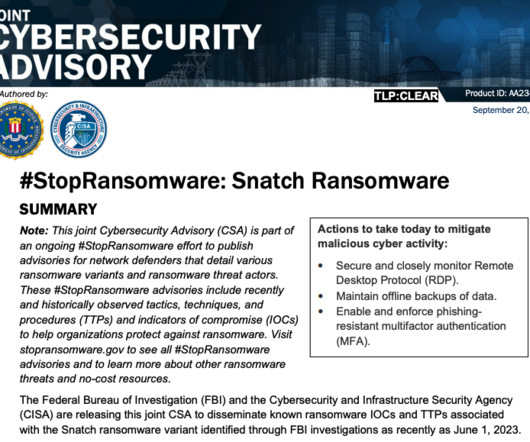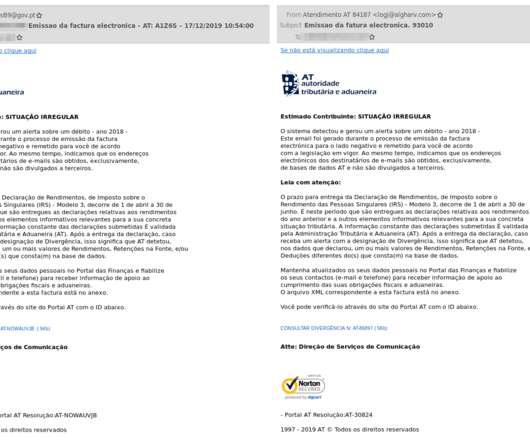A Closer Look at the Snatch Data Ransom Group
Krebs on Security
SEPTEMBER 30, 2023
The government says Snatch used a customized ransomware variant notable for rebooting Microsoft Windows devices into Safe Mode — enabling the ransomware to circumvent detection by antivirus or endpoint protection — and then encrypting files when few services are running. Details after contacting on jabber: truniger@xmpp[.]jp.”





























Let's personalize your content